Mountains are constantly changing sacred places that make me feel alive, adventurous and curious. Mountains free me from the mundane slog of daily life. They are wild, untamed, dangerous places that connect me to the beauty of nature.
Sometimes their very inaccessibility makes them the last refuges of critically endangered wildlife, like the snow leopard, the Andean Spectacled Bear, the Condor, the Red Panda.
Home to the immortals
They are places where you’re confronted with your own vulnerability and insignificance. You are made small by the vastness and power of the landscape around you, by the knowledge that a human lifetime is a mere blink in the life of these sculpted fortresses of rock and ice that push thousands of meters into the heavens. No wonder so many cultures considered (and continue to consider) mountains as religious places – the homes of the immortals alone – be they the Olympians of Greek Mythology or Ice Giants of Norse legends.
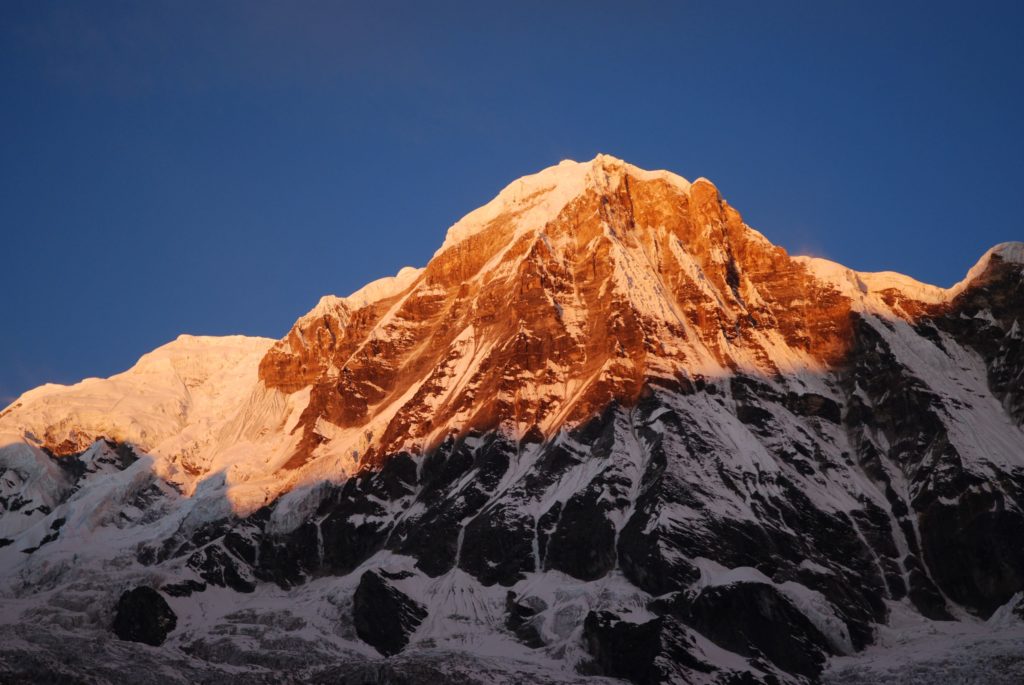
Temperamental gods
In the Andes, where I lived for many years, the great mountains are given the status of the gods themselves. They are sentient forces known as ‘Apus’- magnificent but temperamental beings that give life, crystal water flowing from their glaciers. But these are temperamental gods. If disrespected they can just as easily take away life as give it. With a shake of the earth, a mighty earthquake or volcanic eruption causes devastating avalanches or sends rivers of scorching lava pouring from their flanks into the world of the mortals below.
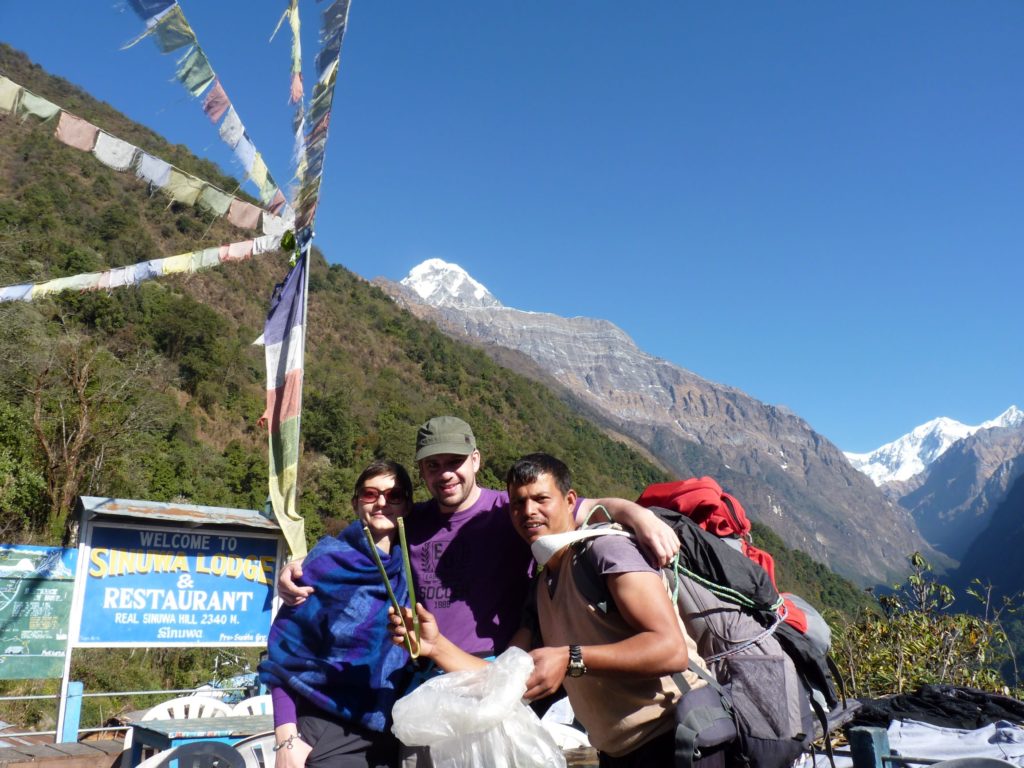
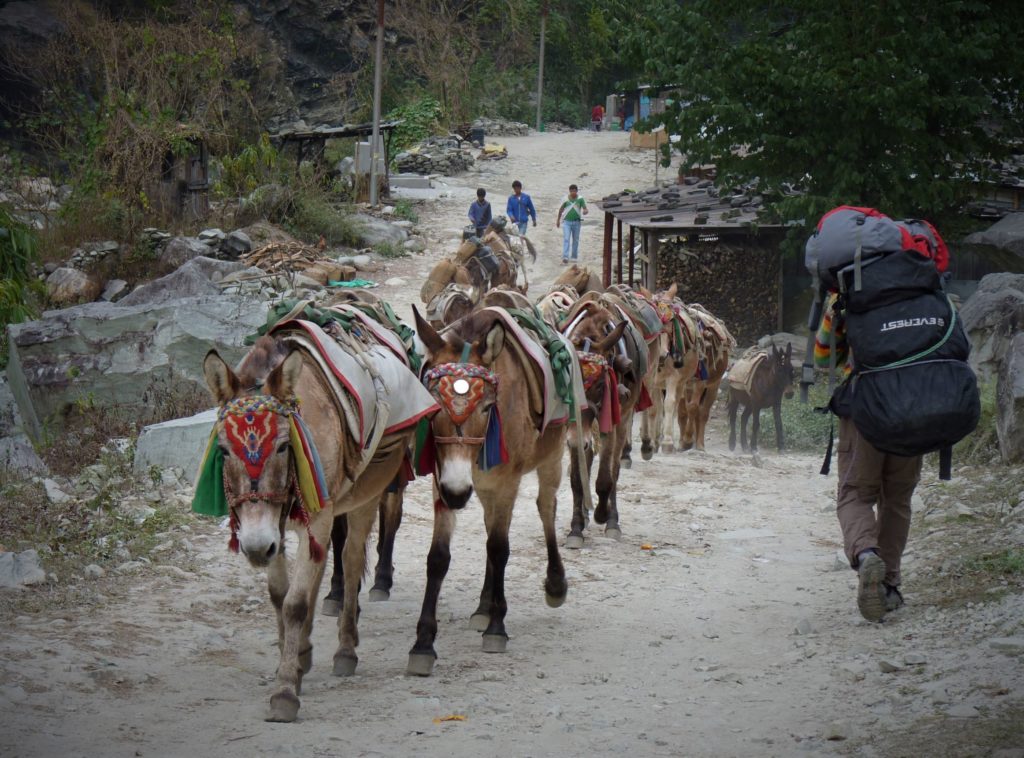
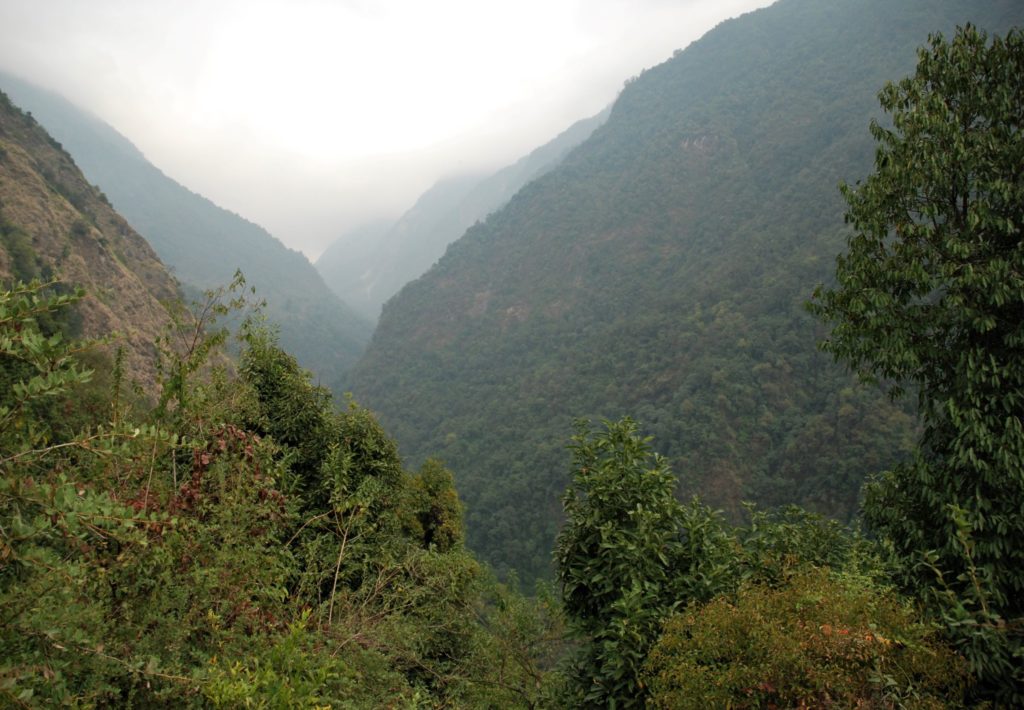
The power to inspire
This power that mountains possess, in reality and culture, is far from a negative quality for me; it draws me to them. It’s a magnetic attraction that fills me with awe and wonder.
Just like the multifaceted Gods of the Greeks, the Hindus and of the Inca, mountains have their own distinct personalities. Some are elegant, sensuous fluted pyramids of ice, others great brute hunks of vertical stone. In the Andes mountains are considered male or female, dependant on their ‘looks’ and persona. And, like people, they have constantly changing moods and stories. Mountains are mysterious and enigmatic when cloaked in mist or angry, wrathful creatures in the fury of a storm. They can be cold and crystalline one moment, then fiery and passionate the next. Every day this amazing light show plays out on the faces of the world’s spectacular peaks. But now and then circumstances collide to create a majestic spectacle beyond the abilities of humans to create.
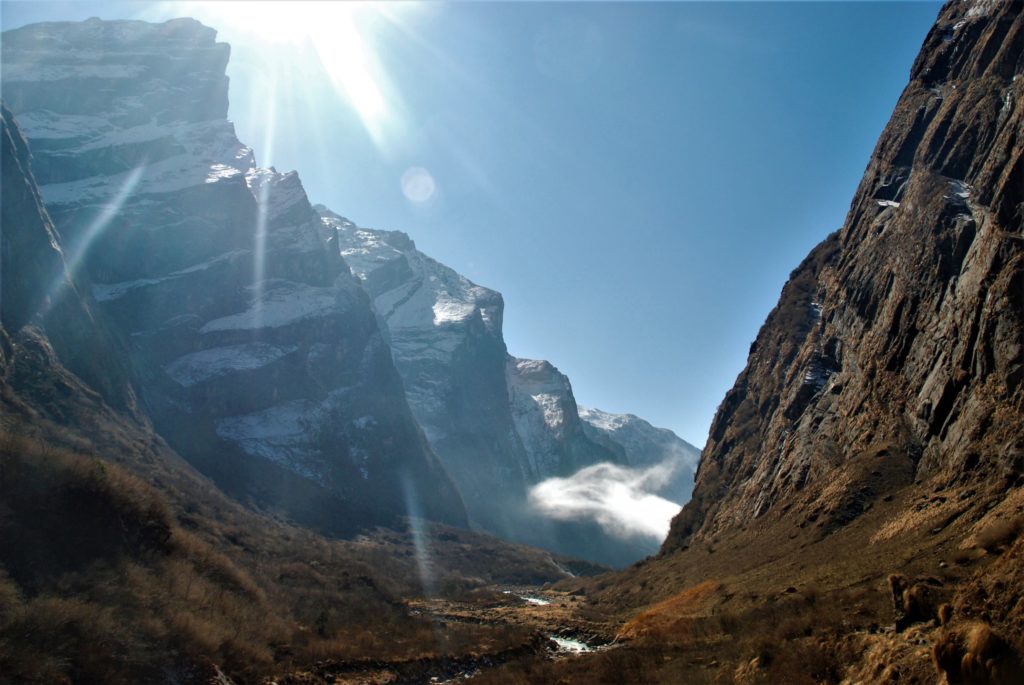
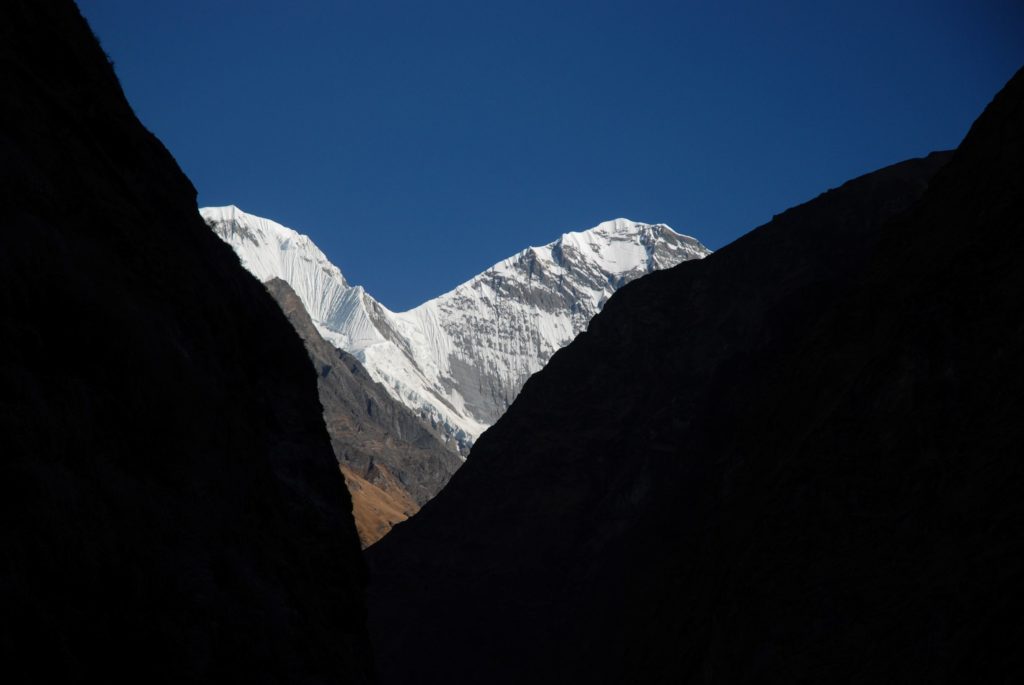
Into the Annapurna Sanctuary
One such moment was in the winter of 2011. I finally had the opportunity to fulfil a long-held dream and visit the mightiest of mountains, the Himalayas in Nepal. At the time the abolition of the Nepalese monarchy had destabilised Nepal, and even popular trekking routes were largely empty of the travellers who usually throng to these mountains. Myself and my wife Gabi decided to attempt the trek to the magnificent isolated mountain basin known as the Annapurna Sanctuary.
We hired a porter to help us in our trek, to carry some of our kit. But to call Gol a porter vastly diminishes this amazing individual who became a guide and friend for us on the journey into the mountains.
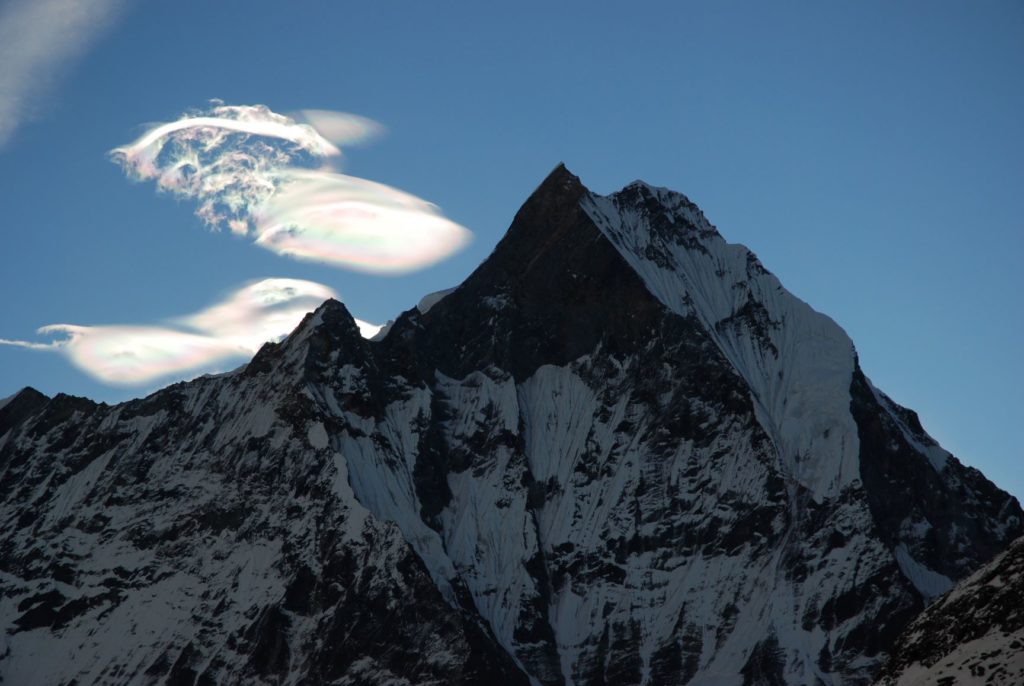
A climate odyssey
Like in the Andes, a walk into the high mountains of Nepal is an odyssey through the world’s climate zones. The hike began in the sub-tropical lowlands, warm even in the Nepali ‘winter’, the trail undulating passed small villages and homesteads, steep hillsides terraced by generations of tenacious Gurung farmers.
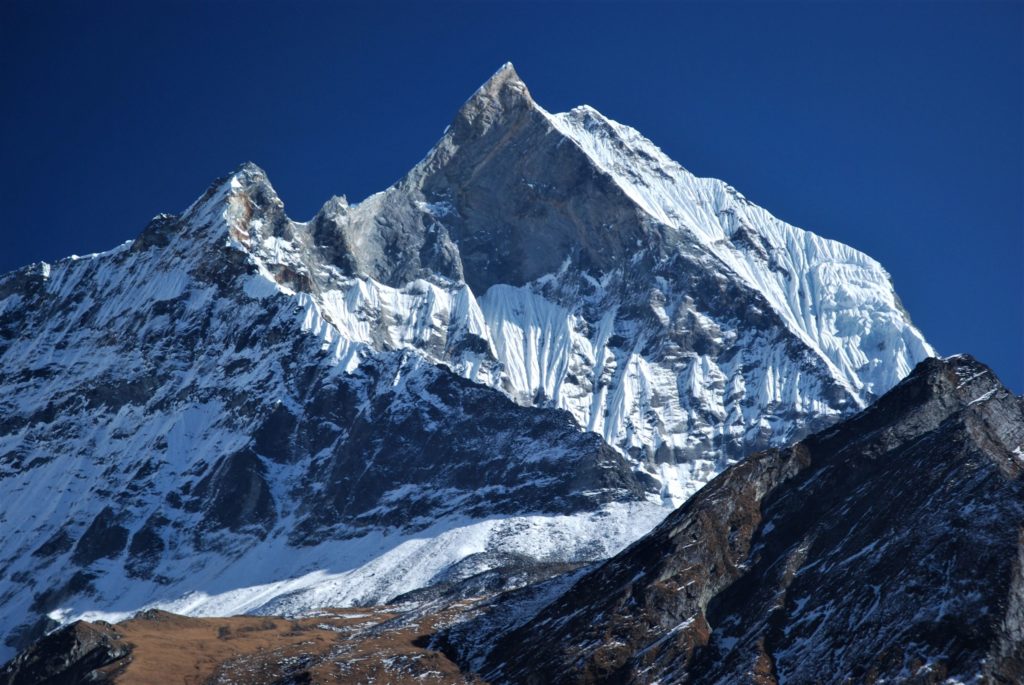
The Modi Khola
The well developed and beautifully sited village of Chhomrong is the last settlement before entering the vertical world of the Annapurnas. The village sits on an airy ridge at around 2000m in altitude, but the village is totally dominated by the lordly presence of Annapurna South rising more than 5000m higher, directly to the north, and the lower but still impressive outlier peak of Hiunchuli.
To the east of these summits, a great cleft of a valley carves into the heart of the mountains. This is the route to the Sanctuary, the Modi Khola, a mountain defile of a scale and grandeur that defies easy description. From Chhomrong the trail noses into the valley passing through a botanical wonderland of dense mist-laden forests, rushing streams and waterfalls. Thick bamboo and rhododendron groves intersperse with fern and lichen filled forests and in between the mountain huts (and with few others trekkers on the trails when we visited), this land feels almost prehistoric.
As you climb higher, the forests thin out and eventually disappear as you enter the alpine zone. The walls of the Modi Khola tower thousands of meters above you like vertical sentinels and snow and ice linger in a landscape filled with shadows. Here you can ‘feel’ the presence of the great mountains above, rather than see them, due to the vertical nature of the walls surrounding you. This area, beyond Hinko’s Cave, is particularly prone to avalanches that thunder down from unseen snowfields and glaciers above. I was captivated by the scale of the land around and hadn’t even reached our goal.
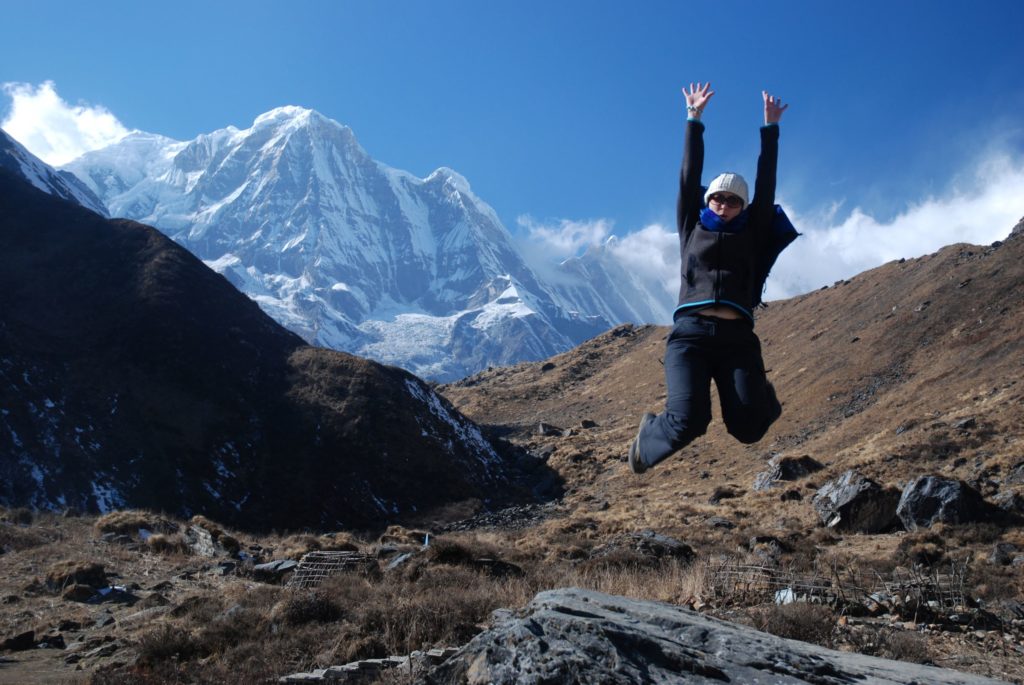
The land of the gods
After three days walking, the great walls of the Modi Khola pulled back and we emerged into the Sanctuary at Machhapuchhare Base Camp. Across the valley to the east was Machhapuchhare itself, ‘the fishtail’, a mountain sacred to Vishnu, and never climbed to the summit. It stabbed nearly 7000m into the sky, like a giant crystal blade. Continuing higher to Annapurna Base Camp and we were surrounded by an incredible 360֯ panorama of peaks. The northern aspects of Annapurna South and Hiunchuli behind us, and in front, rising almost 4 vertical kilometres above the Annapurna Base Camp, the great Southern wall of Annapurna 1, rising to its peak at 8091m.
Annapurna is a goddess, one of the daughters of Himavat, the king of the mountains. She is the giver of food and nourishment, but the south face of this mountain is considered one the most perilous climbs in the Himalaya, with an ever-growing list of fatalities as mortals test their skill and luck against this fickle deity. Roughly one in three climbers who’ve attempted this route have not returned.
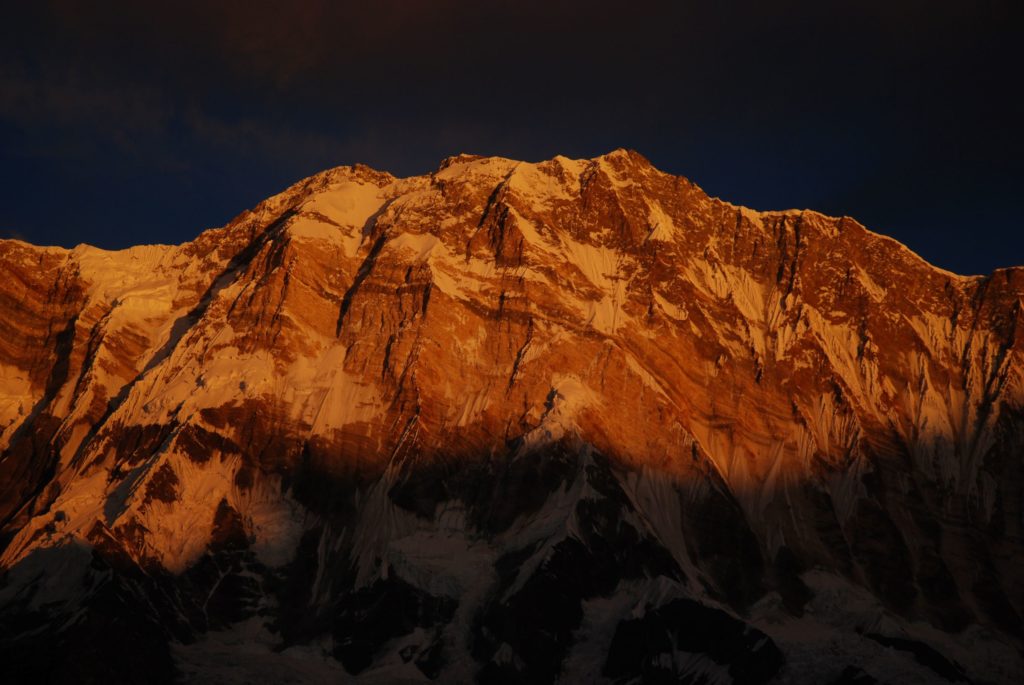
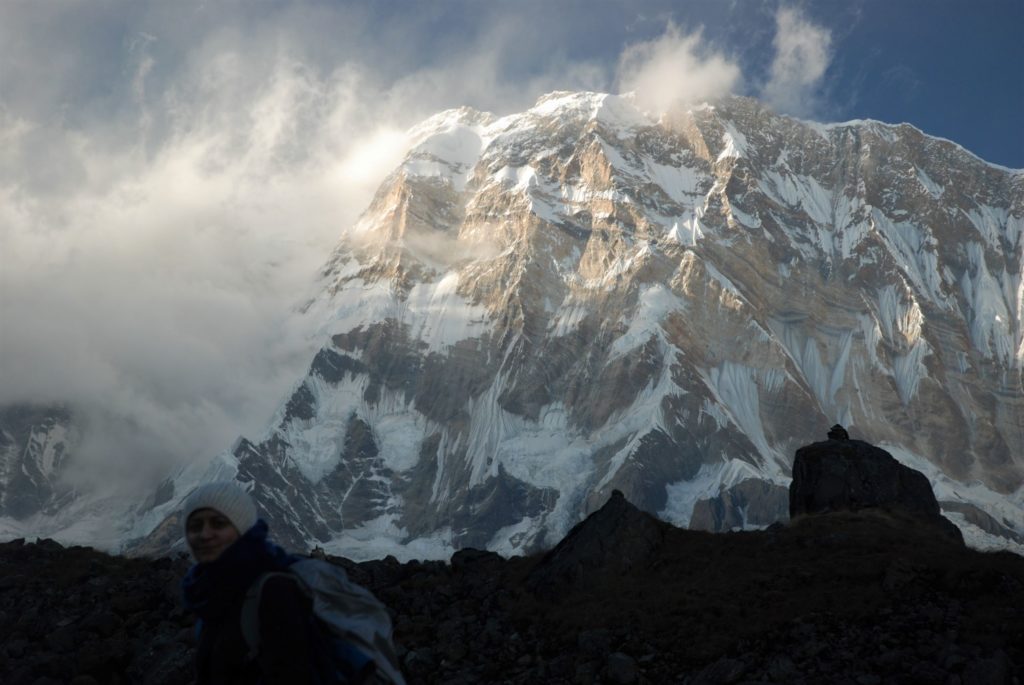
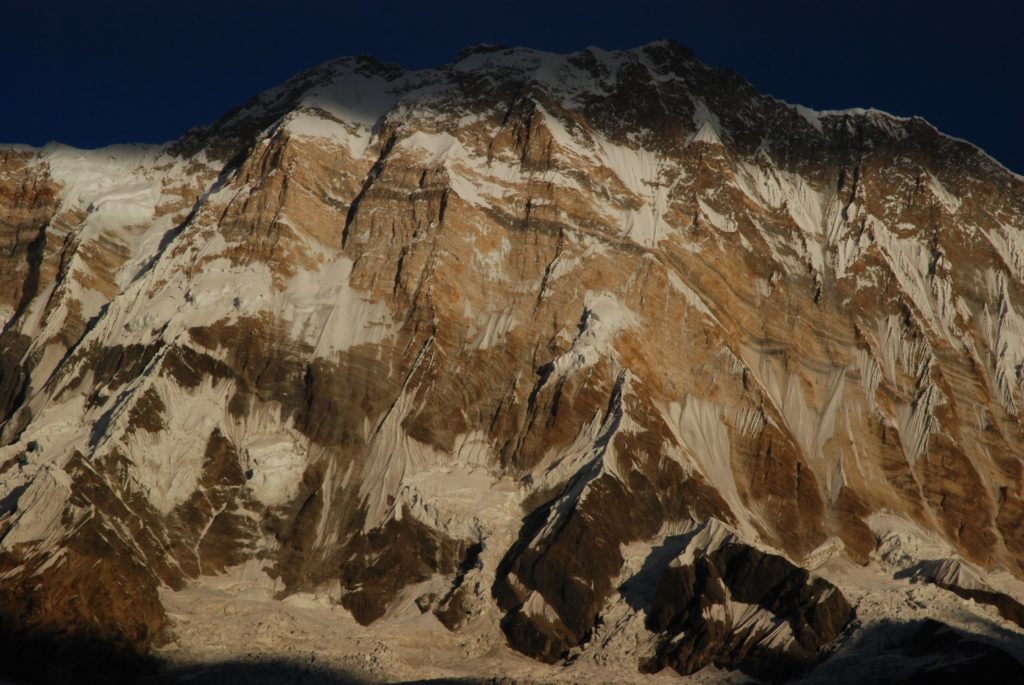
Happiness, I think
For the next couple of days we pulled ourselves out of our beds in the freezing pre-dawn, to explore the sanctuary and watch a light show beyond compare as the sunrise turned the rock and stone of the peaks’ blood-red against the ultramarine blue canvas of the sky, then ran the gamut of shades and moods across nature’s spectrum, before descending into inky night once more. The mountains were now black giants communing in silence with the stars as our galaxy arched across the sky like a great jewelled cloak.
Witnessing the mountains shifting moods, watching them shape and shift clouds and storms, for a brief time, my worldly concerns fell away, replaced only by wonder at the scale and perfection of nature and a universe that we are a tiny, insignificant part of. Happiness, I think. This is why I love the mountains.
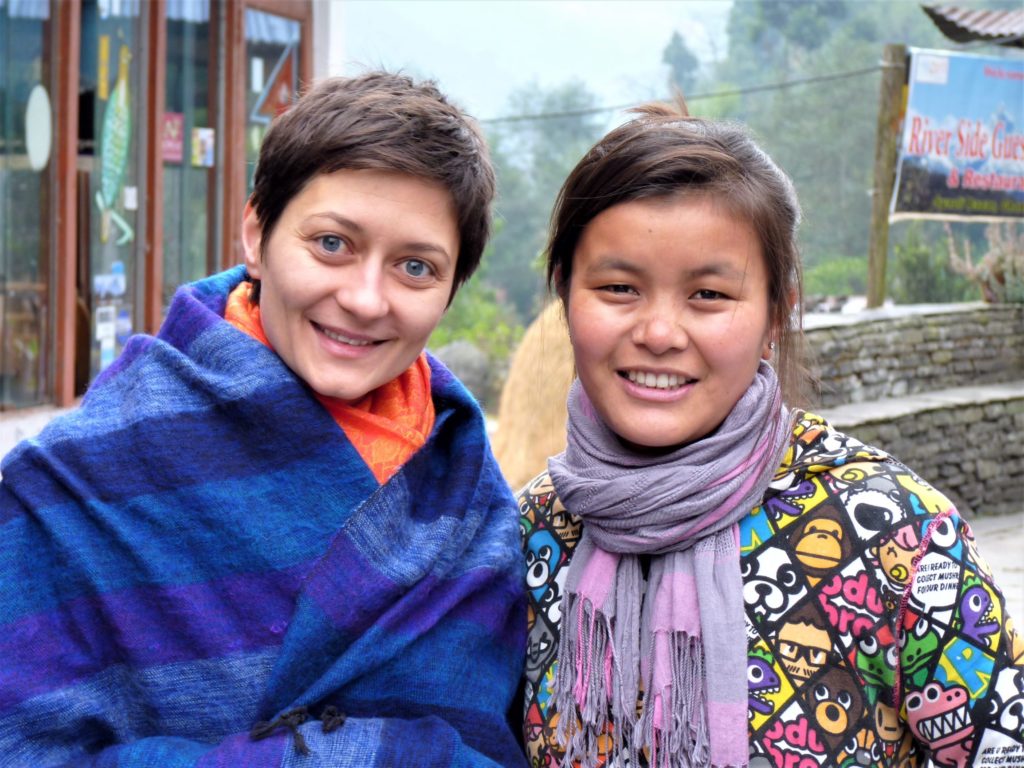
For more hiking adventures check out:
Patagonia – Space to breathe: Part 1 – The Lacandongringo
Patagonia – Space to breathe: Part 2 – The Lacandongringo
Getting high in the Catalan Pyrenees! Part 1: Espot and Sant Maurici – The Lacandongringo
Shorter, Wilder and Better – Mt Meru – The Lacandongringo
Bardia’s Community Conservation Heroes – The Lacandongringo
Interesting recent articles from National Geographic:
This ancient Himalayan kingdom has been isolated from the world—until now (nationalgeographic.com)
Nepal’s Tiger Population Nearly Doubles in Last Decade (nationalgeographic.com)
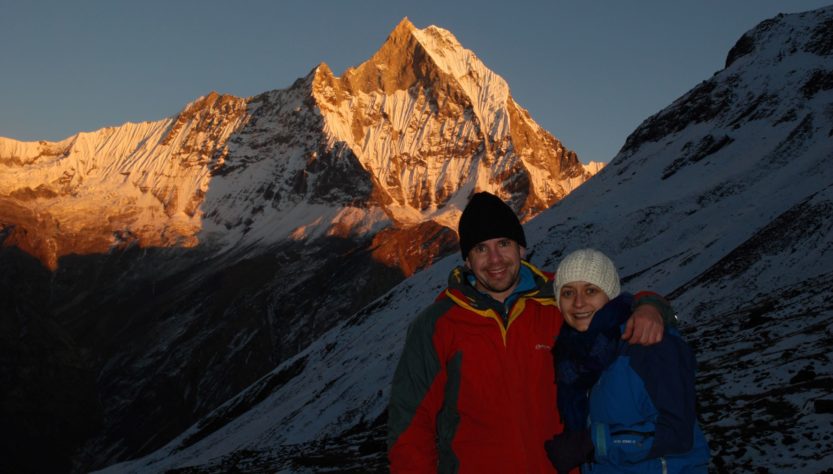
Another beautifully descripted well written article Steve.
Many thanks again Jane!